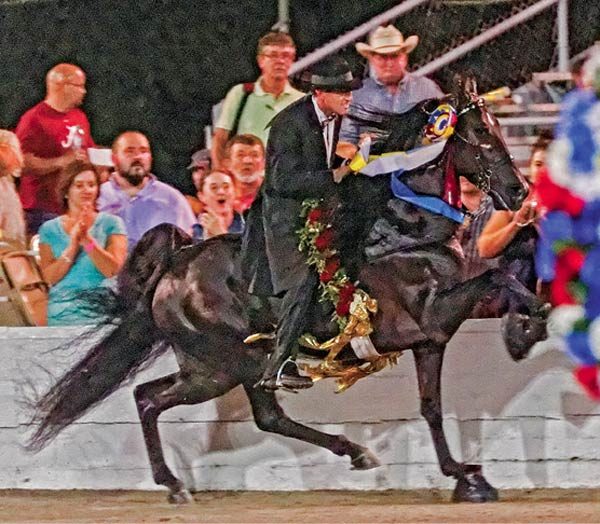Horse soring legislation will go to a vote on Capitol Hill for the first time in nearly a half-century.
The U.S. Sen. Joseph D. Tydings Memorial Prevent All Soring Tactics (PAST) Act of 2019 (H.R. 693) has surpassed 290 cosponsors, which triggers a new House rule that ensures a debate and vote on the legislation.
“The PAST Act is an easy, bipartisan solution that every member of Congress should be able to get behind, as is evidenced by the support from well over half of the House of Representatives,” says Rep. Kurt Schrader, an Oregon Democrat who introduced the bill with fellow veterinarian Rep. Ted Yoho, a Florida Republican. “Horse soring still runs rampant even though laws have been on the books banning this cruel practice for decades. Our bill will strengthen and improve current regulations by allowing [the United States Department of Agriculture] to step in since self-policing has flat out not worked over the last 20 years.”
The bill aims to amend the Horse Protection Act (HPA), which prohibits sored horses from participating in shows, exhibitions, sales or auctions, by criminalizing soring and prohibiting several items that are used to artificially alter the horses’ gait or conceal evidence of soring.
Soring is the intentional application of substances or devices to horses’ limbs to inflict pain in order to achieve an exaggerated high-stepping gait in show rings.
Specifically, the PAST Act would substantially revamp the farriery of Tennessee Walking Horses, Spotted Saddle Horses and racking horses. They would prohibit the use of action devices, “weighted toe, pads, wedge, hoof band, or other device or material at a horse show, horse exhibition, or horse sale or auction that is placed on, inserted in, or attached to any limb of Tennessee Walking Horses, racking horses, Spotted Saddle Horses … to artificially alter the gait of such a horse; and is not strictly protective or therapeutic in nature.”
The legislation defines action device as “any boot, collar, chain, roller, or other devices that encircles or is placed upon the lower extremity of the leg of a horse in such a manner that it can rotate around the leg or slide up and down the leg, so as to cause friction; or strike the hoof, coronet band, fetlock joint, or pastern of the horse.” The legislation does not consider soft rubber or soft leather bell boots or quarter boots that are used to protect the foot as an action device.
Opponents of the bill believe that is too heavy-handed and would result in the demise of the Tennessee Walking Horse industry.
“The Walking Horse industry obviously is disappointed by this action, which is an attempt not to end the unacceptable act of soring, but rather to eliminate the Walking show Horse industry that provides over 20,000 jobs and has an annual economic impact of $3.2 billion,” says Mike Inman, chief executive officer of the Tennessee Walking Horse National Celebration. “The more logical approach is seen in the House bill introduced by Congressman Scott DesJarlais, which calls for scientific objective testing of all entries and strong penalties for those in violation, as opposed to punishing the super majority of horses and owners that are proven to be doing things in the right fashion.”
DesJarlais’ bill — H.R. 1157 – calls for science-based protocols, including swabbing or blood testing, that have been tested and capable of producing scientifically reliable and reproducible results, subjected to peer review and accepted in the veterinary or “other applicable scientific community.”
The Tennessee Republican’s bill has secured 11 cosponsors, while the House version of the PAST Act has 304 as of Friday, May 31, 2019. The PAST Act, which is named for the author of the HPA, is just the third piece of legislation that will go to the House floor as a result of the new House rule. The rule allows a path to a vote for any legislation that maintains 290 cosponsors for a cumulative period of 25 legislative days. The 290 cosponsors represent a supermajority of two-thirds of all members of the House.
“I thank all of my colleagues for their support,” Schrader says, “and look forward to taking a vote in the House soon as we seek to put an end to this abusive practice once and for all.”
Although the new House rules improve the chances of H.B. 693 being approved, the Senate version — SB 1007 — must also be approved before going to the president for his signature. Skopos Labs predicts that the bill has a 2% chance of becoming law.









Post a comment
Report Abusive Comment